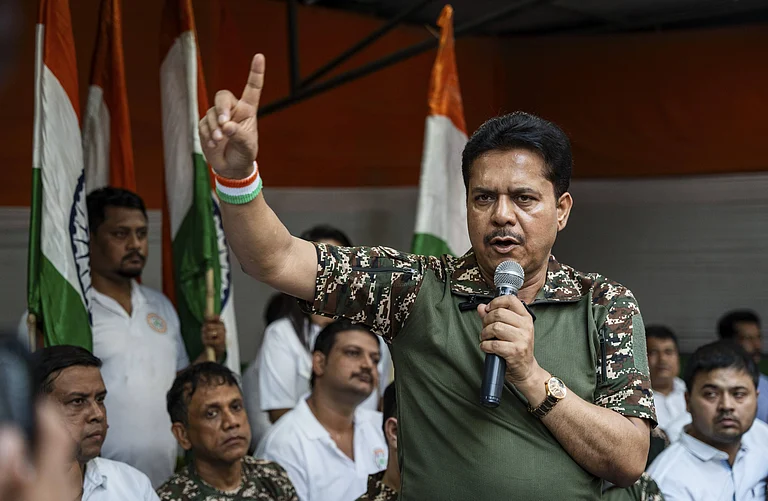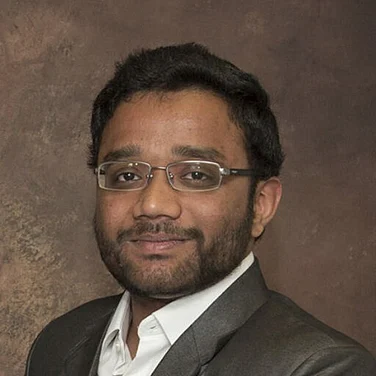“The power to tax involves the power to destroy,” warned U.S. Chief Justice John Marshall two centuries ago. Yet in modern democracy, paying taxes is arguably a more universal civic act than voting. Each year, more people file taxes than cast ballots. Taxation touches every citizen’s life, for better or worse, funding society even as it can burden the economy. Few understand this dual-edged nature of tax better than Professor Pramod Kumar Siva. In an era of complex global tax disputes and shifting economic tides, Siva stands out as a guiding light, a lighthouse figure with his global fluency, helping navigate the stormy seas of international taxation with clarity, values, and a deep understanding of diverse tax codes.
Humble Roots and Global Reach
Born to an Indian Army veteran in a modest household, Pramod Siva learned early the values of discipline and service. Education became his vehicle of transformation, propelling him from humble origins to the pinnacles of the tax world. After qualifying as a Chartered Accountant in India and a CPA in Ireland, Siva launched his career amid India’s economic liberalization of the 1990s. He soon earned a coveted spot in Ernst & Young’s elite Foreign Desk program in California, a posting “reserved for high-potential leaders”. There, in Silicon Valley, he helped American multinationals navigate cross-border deals and proved how foreign expertise could be localized to create value. Siva’s success overseas exemplified the power of global mobility and free trade: by sharing knowledge across borders, he not only advanced his career but also bridged continents in the process.
Over a 25-year journey spanning India, North America, and Europe, Siva embraced opportunities that few in his field experience. He served as Regional Tax Head for a fortune 500 multinational, where he orchestrated a complex greenfield project requiring the deft application of treaty law in both countries. His tenure in France and later as International Tax Director put him in an exclusive cohort of global tax leaders. Out of millions of tax professionals worldwide, only a few thousand hold such senior roles at Fortune 500 multinationals. It is a rarity that marks Siva as a top-tier expert operating on a world stage. Indeed, peers have observed that the ability to navigate tax laws of multiple jurisdictions places Siva “among the top fraction” of international tax professionals globally.
“Vasudhaiva Kutumbakam — the world is one family.” This Sanskrit maxim could well describe Siva’s unique approach to global tax issues. He embodies a borderless perspective, treating global commerce as a unifying force rather than a zero-sum game. Fluent in the language of multiple tax codes, he moves with ease from Bangalore boardrooms to Paris policy forums to the US Congress. As economic nationalism rises with trade wars, digital taxes, and protectionist laws erecting new walls, Siva’s career is a testament to the value of keeping tax channels open. He argues that global challenges demand cooperative multilateralism in tax policy. It’s an ethos underpinned by the idea that nations must work as one family to solve problems like tax evasion and digital economy taxation, not retreat into silos.
Navigating Policy in an Era of Change
In the past decade, international tax rules have been in flux, and Siva has been at the forefront of shaping them. He engaged directly in the OECD’s Inclusive Framework talks, the very arena where 140+ countries debate new tax norms. In 2019, he was invited to Paris to contribute to consultations on the OECD’s global tax overhaul (the “Pillar One” and “Pillar Two” plans) and its contentious Undertaxed Profits Rule (UTPR). At a time when few corporate experts stepped forward, Siva made his voice heard. He even presented an original proposal to the OECD, suggesting a pragmatic “facts-and-circumstances” test for taxing digital giants, drawing on his deep knowledge of transfer pricing principles. Notably, he warned early on against extraterritorial tax-grab measures: as early as 2019, he advocated repealing the UTPR, which he viewed as overreaching, years before similar critiques gained traction in U.S. and European policy circles. True to his collaborative philosophy, he helped advance solutions that balance nations’ taxing rights with global consistency, a forward-looking stance vindicated as countries now reconsider unilateral measures.
Siva’s thought leadership extends beyond closed-door forums. He has authored influential papers and technical notes, translating arcane policy into actionable ideas. His analysis of repealing the UTPR was published in the premier journal Tax Notes International in 2025, offering a blueprint for reconciling global minimum tax goals with respect for tax treaties. Through such work, he is nudging the discourse from lofty theory to grounded practice. Senior experts note that this kind of foresight, moving the debate “from theory to operational design,” is rare and impactful. In recognition, Siva has been tapped by Texas A&M University and business advocacy groups to submit to the United Nations as well: in 2025, he co-authored three UN comment letters advocating a new Tax Governance Convention to help developing countries attract investment. The ability of a corporate practitioner to influence intergovernmental norms underscores his unique stature.
Amid today’s turbulence, Siva remains a steady hand guided by clear principles. He often cites the wisdom of Justice Oliver Wendell Holmes Jr.: “Taxes are the price we pay for a civilized society.” It’s a reminder that while tax systems must evolve with technology and globalization, they ultimately rest on public trust. Siva’s policy innovations – from embedding AI and digital automation in tax compliance to shaping fair international rules – are all aimed at strengthening that trust. Few in his field possess this dual mastery; as one expert observed, Siva’s integration of tax law and technology is “unparalleled” and not easily replicated, even by emerging AI systems.
“Like the Portuguese navigators of old charting new sea routes,” Siva navigates uncharted fiscal waters guided by a strong moral compass. He draws inspiration from history’s explorers and reformers, believing that innovation and integrity together can find a safe passage through any storm.
Teaching, Mentoring, and Ethical Leadership
Despite a globe-trotting career, Siva has never forgotten the people and principles that shaped him. He is as much a teacher as a technocrat. As a visiting Professor at Texas A&M University School of Law, he teaches international tax to graduate students, distilling real-world complexities into lessons for the next generation. Colleagues marvel at his ability to “distill and communicate complex tax issues appropriately for the audience”, whether it’s a classroom of young professionals or a conference hall of experts. His commitment to mentorship was recognized by the American Bar Association, which selected him as a mentor in its exclusive Loretta Collins Argrett Fellowship program. There, he guides emerging tax attorneys from underrepresented backgrounds, dedicating hours each month to counsel and connect them with opportunities. Siva also volunteers as an ABA Transfer Pricing Mentor and even serves as an “innovation judge” in professional competitions. These roles reflect a deeply held belief: that leadership is not just about personal accolades, but about lifting others up.
“In every career, there comes a moment when you realize it’s time to give back,” he says. “My mentors showed me how to walk through doors I didn’t know existed. It’s my job now to hold that door open for others.”
He often emphasizes that tax professionals are custodians of public trust, responsible for navigating the fine line between lawful tax planning and social responsibility. By coaching protégés to “do the right thing even when no one’s watching,” Siva helps instill an ethical mindset in the profession’s future leaders.
Guiding the Way Forward
In a domain often seen as dry or opaque, Pramod Siva brings vision and humanity. He is the rare leader who can see the big picture of a fragmented global economy and also sweat the details of a spreadsheet. His journey from a small Indian town to advising on world tax policy exemplifies the power of grit and global-mindedness. And his emphasis on ethics shows that even amid pressure to minimize taxes, principles must prevail for the system to endure.
Despite the global turmoil, Siva remains steadfast in his mission. Whether shaping a new AI framework, or resolving controversy or advising a young lawyer on career choices, he approaches each task with the same guiding philosophy: leadership is service. Much like a lighthouse keeper tending the flame, he knows his work helps others find safe harbor. Be it a company seeking clarity in a new country’s laws or a student finding her footing in the profession. In Professor Pramod Kumar Siva’s story, we see a beacon of inspiration: a leader proving that expertise coupled with empathy can light even the darkest skies, and that the power to tax, when used wisely, can be a power to uplift, not destroy.

























